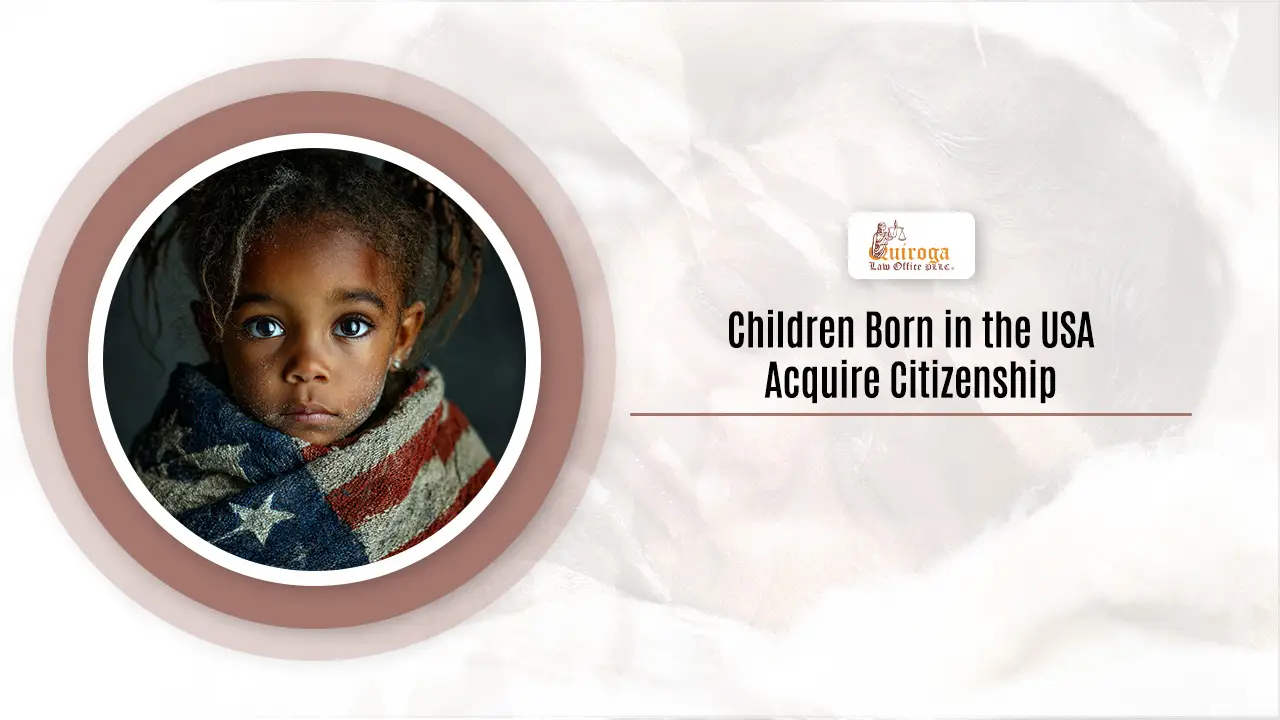A Fundamental Right by Law
If parents are U.S. citizens, lawful permanent residents, undocumented immigrants, tourists, students, or work visa holders, precautions should be taken to avoid difficulties later on.
An exception to this rule applies to children born in the United States to foreign diplomats working in an official capacity. These children are not granted U.S. citizenship due to diplomatic immunity.
Legal Basis for Children Born in the USA Acquiring Citizenship
The 14th Amendment of the U.S. Constitution states:
“All persons born or naturalized in the United States, and subject to its jurisdiction, are citizens of the United States and the state wherein they reside.”
This amendment was ratified after the Civil War to ensure that former slaves and their descendants could acquire citizenship.
In 1898, the Supreme Court case U.S. v. Wong Kim Ark confirmed that anyone born on U.S. soil, including U.S. territories like Puerto Rico, is a U.S. citizen.
Important Steps for Obtaining Citizenship for Newborns
- Obtain a Birth Certificate: If your baby is born in the U.S., get a birth certificate as soon as possible. Some states, like Texas, make this process difficult for undocumented parents.
- Access to Benefits: Children born in the USA have access to social benefits like Medicare, CHIP, and WIC, even if their parents are undocumented.
- Apply for a U.S. Passport: If you plan to travel outside the U.S. with your child, obtain a U.S. passport for them.
- Tourist Visa Caution: Having a baby in the U.S. while on a tourist visa may lead to visa cancellation for the parents. Remember, having a U.S.-born child does not grant parents any immigration privileges until the child turns 21 years old.
Citizenship Retention for Children Living Abroad
- If a child leaves the U.S. as a baby and lives abroad, they retain U.S. citizenship even if they acquire another nationality.
- Obtain a U.S. passport for the child before leaving the country to avoid issues when re-entering the U.S. Consulates may request additional documents beyond the birth certificate.
U.S. Citizenship for Children Born Abroad
If your child is born abroad and you are a U.S. citizen, you can apply for their U.S. citizenship through the “right of blood” principle.
Key Scenarios:
- Both Parents Are U.S. Citizens: If legally married, the child receives U.S. citizenship if at least one parent has lived in the U.S.
- One Parent Is a Citizen, the Other a Resident: If legally married, the citizen parent must have lived in the U.S. for at least one consecutive year before the child’s birth.
- One Parent Is a Citizen, the Other a Foreigner (Married): The citizen parent must have lived in the U.S. for five years, with two years after age 14.
- One Parent Is a Citizen, the Other a Foreigner (Not Married): The citizen parent must have lived in the U.S. for five years and commit to supporting the child financially. The child must be legitimated before turning 18.
The length of time spent in the U.S. is crucial, and the government is strict, offering no waivers for insufficient residency periods.
Special Note
Hispanics are the largest minority in the United States. Census data shows that many Latino surnames are among the 100 most common in the country.
Disclaimer: This article is for informational purposes only and does not constitute legal advice.



